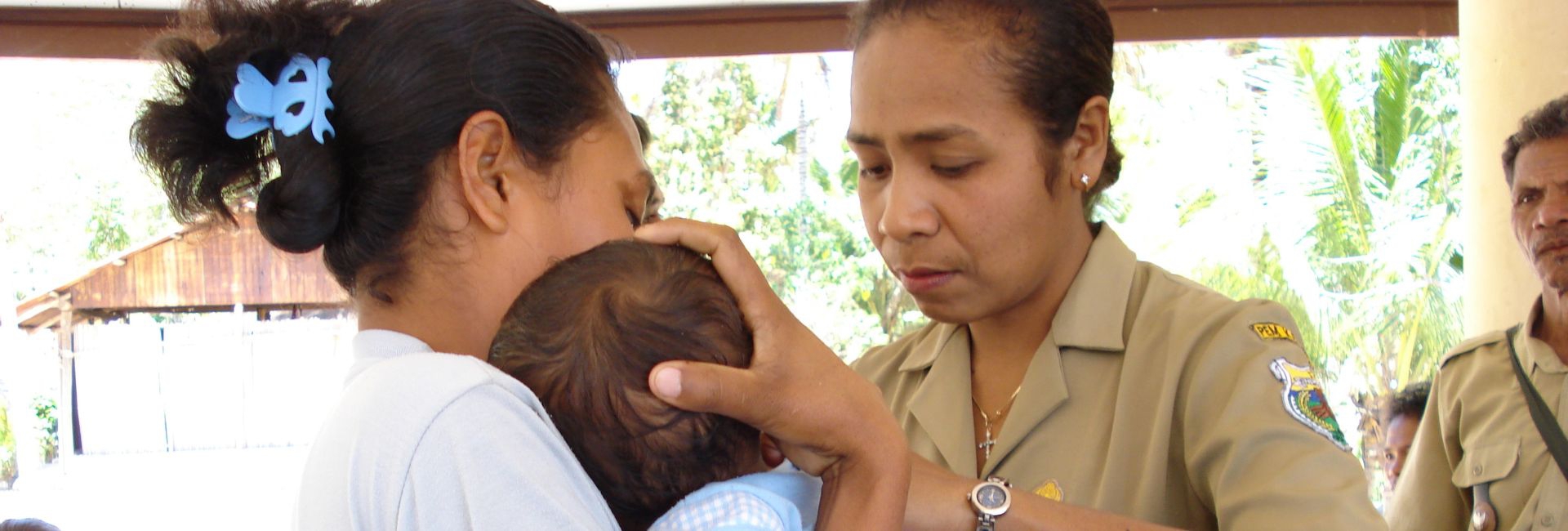.
This article was originally published from Policy Forum, Asia & The Pacific Policy Society.
.
With more Indonesian families coming to rely on two incomes to make ends meet, parents need a helping hand from government and employers when it comes to childcare, Michelle Andrina and Sylvia Andriyani Kusumandari write.
In some cultures, including in Indonesia, women are considered primarily responsible for housework and caregiving duties. In many families, men do not expect to perform such duties, seeing their designated role as providing the family’s main source of income.
For Indonesian women, working and earning income does not automatically change this dynamic. Families with two working parents do not always adjust to equally share housework if a mother is working. In many cases, women decide to leave their careers after having their first child because of these norms.
Some mothers, however, must continue to work to make ends meet and lack access to reliable and affordable childcare. In such cases, children may be left with a caregiver who might not be able to provide appropriate care, and some are left to care for themselves.
Our preliminary study on childcare arrangements in Indonesia finds that it is common practice to rely on grandparents and other family members to help with childcare. According to the Sociocultural and Education Module of Indonesia’s 2018 National Socioeconomic Survey, nearly 47 per cent of mothers have had to leave behind children younger than five to engage in activities away from home. Nearly half of these reported that the children were under the supervision of their grandparents.
However, relying on grandparents for childcare comes with consequences for families. Some parents reported conflict over parenting styles and discipline. In any case, mothers still hesitate to put in extra hours at work if it means having less time to bond with their children.
Meanwhile, families who do not live close to their relatives have an even tougher task. Mothers juggling multiple odd jobs struggle with childcare arrangements, given that their hours of employment are often uncertain.
One mother reported that she had to take her two youngest children to work when there was a client for her job as a massage therapist.
When there weren’t clients, she would go around the village selling fried foods while carrying her youngest children. Her life became easier when she was able to open a food stall in front of her house and as her children grew older, as she could rely on her older daughter to take care of her younger sister.
Her experience is common. Low-income families who live apart from their relatives often rely on their older children to take care of the younger ones. They believe that caregiving duties, such as feeding and bathing, can easily be performed by older children.
Unfortunately, children are not meant to be parents.
While older siblings may be able to watch over the younger ones occasionally, they are not emotionally ready to assume the position of parents long-term, and this can affect the development of children and family dynamics.
In Indonesia, childcare arrangements have never been easy for low-income families.
For these families, putting food on the table often comes first, with childcare only being considered once an adequate income is secured. Due to scarce resources, they don’t have much of a choice.
When asked about the need for assistance, low-income families said they preferred programs that can reduce expenses or increase incomes over those that offer childcare directly. Even if daycare facilities are available, they often did not know about such services. This shows that availability is not the whole story – the need to avoid poverty and local norms affect parents’ decisions about childcare.
Employers are key actors when it comes to childcare arrangements. Families in the study expressed hope that employers could provide more accommodating policies for women with children.
Overall, these findings highlight the need for an industrial relations ecosystem in Indonesia that better supports working parents.
Those on low incomes in particular need access to desirable childcare arrangements. To them, this means services that do not reduce the income they take home to their families.
To create this environment, the Indonesian Government must formulate policies that protect flexible working arrangements.
This could involve incentivising employers to incorporate flexible working arrangements into their workplace policies. For jobs where flexible working arrangements are not feasible, the regional labour agency could step up supervision to ensure that employers adhere to fair and reasonable working conditions for parents.
In addition, the government still needs to provide more affordable childcare facilities for low-income families working in the formal and informal sectors. It must also ensure that working people know about these services.
This would especially benefit working parents who do not live close to their relatives. Aside from protecting incomes, leaving children in childcare facilities minimises the risk of danger to children that are left at home.
Lastly, the government should support all this work by engaging public figures to campaign for social change.
Indonesian conceptions of the responsibilities of men and women in employment, care work, and domestic chores need to adapt to the changing environment. Moreover, the public should be better informed about the importance of adequate supervision for keeping children safe.
More families are relying on multiple working parents to live and economic conditions are requiring more workers to travel long distances or work multiple jobs. In this challenging atmosphere, Indonesia’s working families need more support from their government in the form of policies that help them earn a decent income and provide appropriate care for their children.





